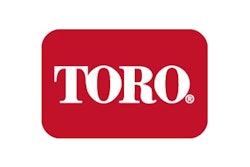
Is your company sales-driven? Most company owners and CEOs answer "yes" when asked this question. But, according to sales expert Chuck Reaves, when asked if they have a chief sales officer in their companies, most answer "no".
What exactly is a chief sales officer (CSO), you ask? He or she is a representative of the sales department at the C-level of your organizational chart; a fancy term for those employees in the uppermost of upper management, with C-level meaning that the word chief is somewhere in their titles. The CSO is on par with other executives such as the chief financial officer (CFO) and chief operating officer (COO). They all report directly to the CEO.
While some companies have found the CSO position to be a critical role, most do not have one. Here are the most common reasons why.
We never had one before. Other C-level positions, like chief technology officer (CTO), probably did not exist in the past either. However, the rapid changes in technology necessitated the inclusion of technological innovations in decision making. Company owners don't see that same kind of necessity with respect to sales.
There is no training for the CSO. But that is changing. Resources are now being developed to give the CSO the information they need to execute their responsibilities.
There are no tools for measuring the effectiveness of the CSO. This, too, is changing. Extreme Sales Analytics (ESA) and Sales Resource Planner (SRP) software programs are emerging.
Your customers do not need for you to have a CSO, so why bother? Actually, you could very well need a CSO in order for your customer relationships to grow. Customer relationships are dynamic, not static. Either you will drive the changes in the relationship or someone else will; your customer or your competitor. After all, if your competitor has a strategic-focused CSO and you do not, your competitor could be more likely to introduce the next new thing to your customers.
How a CSO differs from a VP of sales
Perhaps you already have a vice president of sales or a director of sales or simply a sales manager; titles are just titles, right? Not necessarily. The CSO represents the sales team at a level where decisions for the future are being made. The CSO isn't just overseeing a sales team and managing existing sales activity; that is tactical. The CSO is a more of a strategist.
The CSO, or any C-level executive for that matter, focuses on planning for the long-term future. A vice president generally thinks in shorter timeframes. For instance, if the CEO is thinking three years out (as most are), the C-levels reporting to the CEO need to be thinking two years out. In that scenario, the VP level needs to be thinking one year out, the sales management team thinking one quarter and salespeople thinking one month.
The C-level exec invests their time in learning and evaluating what new processes and technologies are coming that will impact their business. VPs focus their time and talents on what current capabilities are viable for making more immediate improvements in sales activities and management.
While the VP is sometimes brought in to address pressing customer and market issues, C-levels are rarely involved in day-to-day activities. The vice president of sales is likely to know the details of significant pending sales, but the CSO is uninvolved with them. How can that be, you might ask in astonishment? After all, building relationships has been a cornerstone of your sales process for many, many years. How could your chief sales officer not be involved with an important pending sale?
First of all, you have to recognize that all selling is relationship selling. Companies don’t do business with companies; people do business with people. That said, the CSO can play a pivotal role in helping your sales people become easier and more pleasant to do business with.
An example of this occurred when a CSO found a new tablet-based technology that reduced a portion of their sales cycle from three weeks to three minutes. Think about that; three weeks to three minutes. About 40% of this company's sales were in disaster recovery. When they approached a prospect that had lost 20% of their capacity and offered to have them up and running again three weeks earlier than any other vendor, who did the prospect choose? Did the prospect make their buying decision on price? Of course not.
You could do the same thing in your sales process. Can your CSO help identify tools and develop processes to speed up your estimating/proposal time, for example? That's a good question to explore.
Another good question to explore is: Would I really need a CSO on my team to accomplish something like this? To answer that question, you need to answer a few more questions:
- Would you or your VP of sales have the time to thoroughly investigate the new technology and/or necessary process improvements? If not, a CSO could come in really handy.
- If a sizable investment in new tools or technology would be required, would the company owner or CEO have to make the final decision? If so, it might make sense to have someone from sales at the C-level, i.e. a CSO, to assist the CEO in the research and vetting process.
- Will some serious, time-consuming negotiating have to take place with a vendor, for instance, in order to make the change? If so, a VP of sales or sales manager might not have the time to do it because they are too busy managing the ongoing sales activity.
How a typical CSO might spend their day
Anytime company owners add salaries to their G+A budgets, they should do so with caution. You should always have a well-defined job description and set of expectations for your new salaried employees, including a CSO. Here's a quick rundown of how the typical CSO might spend their day.
- Evaluating new processes including Lean/Kaizen/Six Sigma for sales and discussing them with the other C-levels, beginning with the chief operating officer
- Evaluating new technologies for planning and executing sales activities and discussing them with the other C-levels, beginning with the chief technology officer
- Evaluating the applicability of new compensation concepts and discussing them with the other C-levels, beginning with the chief financial officer
Criteria to consider when hiring a CSO
Hire for tomorrow, not today. Find someone who is comfortable with the changes that are happening in your market and industry, and with technology and management processes.
Look for a strategic mindset. Rather than someone who knows how to get things done, look for someone who can determine alternatives for moving the organization forward.
CSOs think about “who else?” and “what else?” Look for a creative thinker who knows how to find and solicit new ideas.
THE BOTTOM LINE: How a CSO can add value to your company
While it's still a fairly new concept, innovative companies are starting to embrace the role of chief sales officer. That's because the CSO can:
- Think creatively and solicit new ideas
- Evaluate new sales processes
- Drive the strategic planning process with other C-levels executives
- Help develop ways to strengthen the company's value proposition
- Help the company achieve its overall corporate objectives
Perhaps someone in your organization is filling the role of CSO already. Are they doing it intentionally or by default? Maybe you, the company owner, are filling that role yourself. But is that the best use of your time?
Whether or not a CSO is right for your company is for you to decide. But make no mistake: The things a CSO is normally tasked with doing are very important to your company.
Chuck Reaves, CSP, CPAE, CSO, helps companies raise their prices and volumes simultaneously through innovative processes, tools and training. With his innovative presentations on sales and motivation, Reaves has inspired hundreds of people to pursue and achieve their impossible dreams. Along with pioneering many advanced sales tools and processes, Reaves' achievements include Vistage’s "Impact Speaker of the Year" honors and being named the top salesperson for AT&T. For more information about Chuck Reaves please visit www.chuckreaves.com.



















